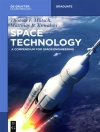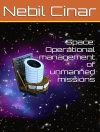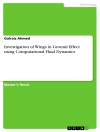The Yearbook on Space Policy, edited by the European Space Policy Institute (ESPI), is the reference publication analysing space policy developments. Each year it presents issues and trends in space policy and the space sector as a whole. Its scope is global and its perspective is European. The Yearbook also links space policy with other policy areas. It highlights specific events and issues, and provides useful insights, data and information on space activities. The first part of the Yearbook sets out a comprehensive overview of the economic, political, technological and institutional trends that have affected space activities. The second part of the Yearbook offers a more analytical perspective on the yearly ESPI theme and consists of external contributions written by professionals with diverse backgrounds and areas of expertise. The third part of the Yearbook carries forward the character of the Yearbook as an archive of space activities. The Yearbook is designed for government decision-makers and agencies, industry professionals, as well as the service sectors, researchers and scientists and the interested public.
表中的内容
The year in space 2015.- Views and insights: Issues and perspectives on space launch vehicles’ development.- Space at a crossroads: government programmes can benefit from commercial space and other changes if long-standing challenges are addressed.- Virgin Galactic: creating safe, reliable, and frequent access to space.- The future of satellite applications: the end-user perspective.- Efficient access to space-implications for space astronomy.- Potentially transformative technologies for 21st century space.- Big data from outer space: opportunities and challenges for crisis response.- Some ethical constraints on near-earth resource exploitation.- Governance, strategies and approaches in 2030.- The economics of launch vehicles: towards a new business model.- Facts and figures.












